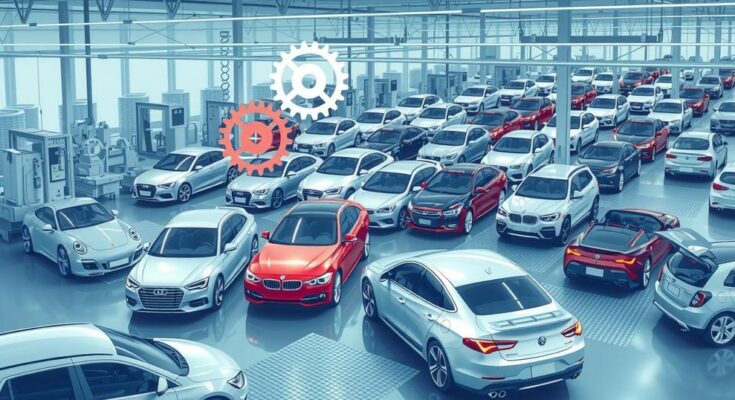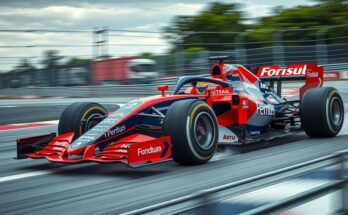President Donald Trump’s announcement of a 25 percent tariff on auto imports may notably affect Indian companies such as Tata Motors, Eicher Motors, Sona BLW, and Samvardhana Motherson, particularly concerning their exports to crucial markets like the U.S. and Europe. While some firms face direct impacts, others like Samvardhana Motherson may have defenses due to their manufacturing setups abroad.
In the fiscal year 2024, India exported auto components valued at $21.2 billion, contributing to a global market estimated at $1.2 trillion. The recent announcement by U.S. President Donald Trump regarding a 25 percent tariff on auto imports is poised to have repercussions for several Indian automotive firms, including Tata Motors, Eicher Motors, Sona BLW, and Samvardhana Motherson. These companies export auto components to regions such as Europe, Japan, South Korea, and China, which are suppliers of vehicles to the United States, according to MoneyControl.
Although Tata Motors does not directly export to the U.S., its subsidiary Jaguar Land Rover (JLR) has a significant presence in the American market, accounting for 22 percent of JLR’s overall sales according to its FY24 annual report. JLR sold approximately 400,000 vehicles globally during FY24, with the U.S. being a primary market, where vehicles are largely produced in the United Kingdom and other international facilities.
Eicher Motors, known for its Royal Enfield motorcycles, could face challenges as the U.S. serves as a crucial market for its 650cc models. Additionally, Samvardhana Motherson International Ltd, a prominent auto component manufacturer, has a robust presence in both Europe and the U.S. It supplies components to major automakers such as Tesla and Ford. However, the company operates established manufacturing facilities in the U.S. and Europe, offering it a degree of protection from the tariffs compared to firms dependent solely on exports.
Sona Comstar manufactures various automotive systems and parts, sourcing about 66 percent of its revenue from U.S. and European markets. To mitigate risks, Sona BLW is diversifying its export markets and expanding into China, Japan, and South Korea, aiming to have these regions contribute over 50 percent of its revenue within five years. Other significant players in this scenario include Bharat Forge, Sansera Engineering Ltd, Suprajit Engineering, and Balkrishna Industries. Shipments to the U.S. and Europe, the largest importers of auto parts, accounted for approximately 4.5 percent of total global trade.
The imposition of a 25 percent tariff on auto imports by the U.S. government will likely impact a range of Indian companies involved in the automotive supply chain. Those like Tata Motors, Eicher Motors, and Sona Comstar may face challenges, but companies with established manufacturing in the U.S. and Europe, such as Samvardhana Motherson, may be less affected. Additionally, the broader context shows India’s significant contribution to global auto component exports, highlighting the importance of market diversification as a strategy for these firms amid potential tariff impacts.
Original Source: www.hindustantimes.com




